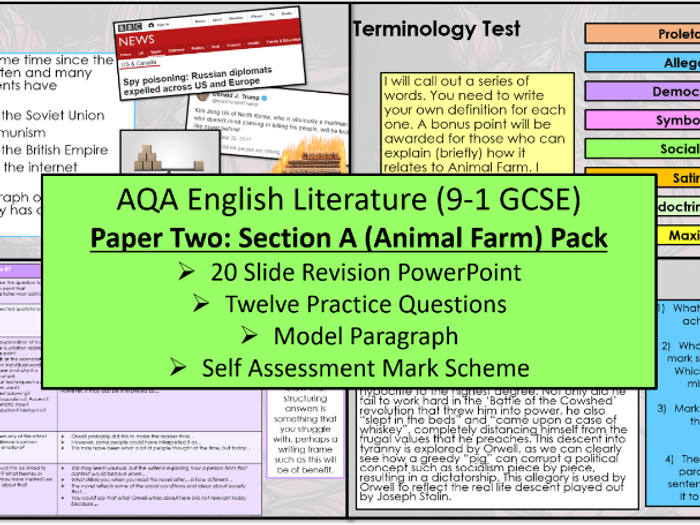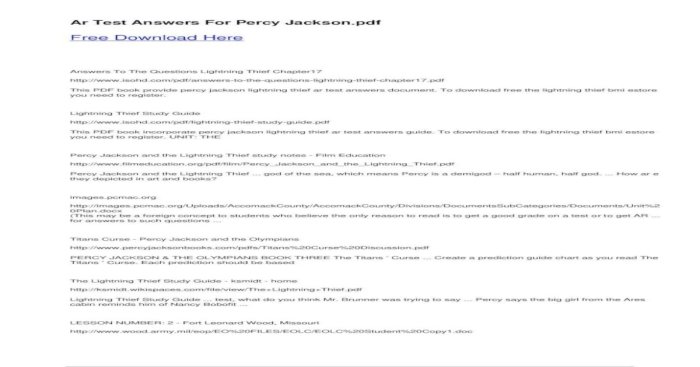Prepare to delve into the depths of Animal Farm AR Test Answers, where we unravel the intricacies of George Orwell’s timeless allegory. Join us as we explore the profound themes, captivating characters, and enduring symbolism that make this literary masterpiece a cornerstone of modern literature.
Animal Farm, a poignant tale of revolution and its aftermath, serves as a cautionary reminder of the dangers of totalitarianism and the corrupting influence of power. Through the eyes of its animal characters, Orwell paints a vivid portrait of a society grappling with the complexities of freedom, equality, and the human condition.
Animal Farm Themes

Animal Farm is a political allegory that explores the dangers of totalitarianism. Orwell uses the story of a group of animals who rebel against their human farmer to illustrate how power can corrupt even the most well-intentioned individuals.
Totalitarianism
Totalitarianism is a form of government in which one person or party exercises absolute control over all aspects of life. In Animal Farm, the pigs who take over the farm after the rebellion quickly establish a totalitarian regime. They use propaganda, censorship, and violence to maintain their power and suppress any dissent.
Language and Control
One of the most effective ways that the pigs control the animals is through the manipulation of language. They rewrite the Seven Commandments of Animalism to justify their own actions and silence their critics. They also use euphemisms and slogans to create a false reality and make their own behavior seem more acceptable.
Characters and Society
The characters in Animal Farm represent different aspects of society. The pigs represent the ruling class, the dogs represent the secret police, and the sheep represent the masses. Orwell uses these characters to show how easily people can be manipulated and how quickly a revolution can be betrayed.
Animal Farm Characters

George Orwell’s Animal Farm is a timeless fable that explores the dangers of totalitarianism and the corruption of power. The novel features a cast of memorable characters, each representing a different aspect of human nature.
Napoleon
Napoleon is a cunning and ruthless pig who emerges as the leader of Animal Farm after the rebellion. He is a master manipulator who uses propaganda and fear to maintain his power. Napoleon represents the totalitarian leaders who have plagued human history, such as Stalin and Hitler.
Boxer and Benjamin
Boxer is a loyal and hardworking horse who embodies the proletariat. Despite his unwavering dedication to the farm, he is ultimately betrayed by Napoleon. Benjamin is a cynical donkey who represents the intelligentsia. He sees through Napoleon’s lies but lacks the courage to challenge him.
Squealer, Animal farm ar test answers
Squealer is a persuasive pig who serves as Napoleon’s propaganda minister. He is a master of spin and distortion, able to twist the truth to justify Napoleon’s actions. Squealer represents the media and propaganda machines that are used by totalitarian regimes to control the population.
Animal Farm Symbolism
Animal Farm is replete with symbolism, employing various elements to convey deeper meanings and underscore the themes of the novel. The windmill, the pigs’ green banner, and the Battle of the Cowshed serve as prominent symbols that enhance the narrative’s richness and provide insights into the characters and their actions.
To understand the intricacies of Animal Farm, it’s crucial to delve into the available test answers. For those seeking further intellectual stimulation, I recommend exploring the Alpha Phi Alpha IMDP Test 1 , a rigorous assessment that challenges your knowledge and analytical skills.
By tackling this test, you can expand your understanding of leadership principles and their practical applications, ultimately enriching your comprehension of Animal Farm and other literary works.
The Windmill as a Symbol of Progress and Control
The windmill represents the animals’ aspirations for progress and independence. Its construction symbolizes their determination to improve their living conditions and escape the tyranny of Mr. Jones. However, the windmill also becomes a symbol of the pigs’ control and manipulation as they seize power and exploit the other animals’ labor for their own benefit.
The Pigs’ Green Banner as a Symbol of Power
The green banner, hoisted by the pigs after the Rebellion, represents their newfound authority and dominance. The color green is often associated with prosperity and growth, but in the context of the novel, it ironically signifies the pigs’ oppressive regime.
The banner becomes a symbol of their propaganda and their efforts to maintain control over the other animals.
The Battle of the Cowshed as a Symbol of Rebellion and Revolution
The Battle of the Cowshed is a pivotal event in the novel, symbolizing the animals’ defiance against the pigs’ tyranny. The battle highlights the inherent conflict between the desire for freedom and the corrupting influence of power. The animals’ victory in the battle represents a temporary triumph over oppression, but it ultimately foreshadows the pigs’ eventual return to power and the failure of the Rebellion.
Animal Farm Historical Context: Animal Farm Ar Test Answers

Animal Farm, a satirical allegory by George Orwell, was heavily influenced by the events of the Russian Revolution and the subsequent Stalinist era.
The novel reflects the events of the Stalinist era, including the rise of a totalitarian dictatorship, the suppression of dissent, and the manipulation of history.
The Russian Revolution
- The Russian Revolution of 1917 overthrew the Tsarist autocracy and established a communist state.
- Orwell saw the revolution as a potential for a more just and equitable society.
- However, the revolution was soon hijacked by Joseph Stalin, who established a totalitarian dictatorship.
The Stalinist Era
- Stalin’s regime was characterized by widespread terror, purges, and the suppression of dissent.
- Orwell’s novel reflects these events through the character of Napoleon, who represents Stalin.
- Napoleon gradually consolidates his power, eliminates his rivals, and manipulates the animals’ history to justify his actions.
Impact on Subsequent Works of Literature
Animal Farm has had a profound impact on subsequent works of literature, particularly in the genre of political satire.
- The novel’s use of animal characters to represent human figures has been widely imitated.
- Its themes of totalitarianism, propaganda, and the abuse of power have resonated with writers and readers alike.
- Animal Farm remains a powerful reminder of the dangers of unchecked power and the importance of vigilance against tyranny.
FAQ Insights
What is the significance of the windmill in Animal Farm?
The windmill symbolizes progress and control. It represents the animals’ aspirations for a better future, but it also becomes a tool of manipulation and oppression in the hands of the pigs.
How does the green banner represent the pigs’ power?
The green banner represents the pigs’ authority and their claim to power. It is a symbol of their dominance and their ability to control the other animals.
What is the significance of the Battle of the Cowshed?
The Battle of the Cowshed is a turning point in the novel. It marks the end of the animals’ rebellion and the establishment of the pigs’ dictatorship.